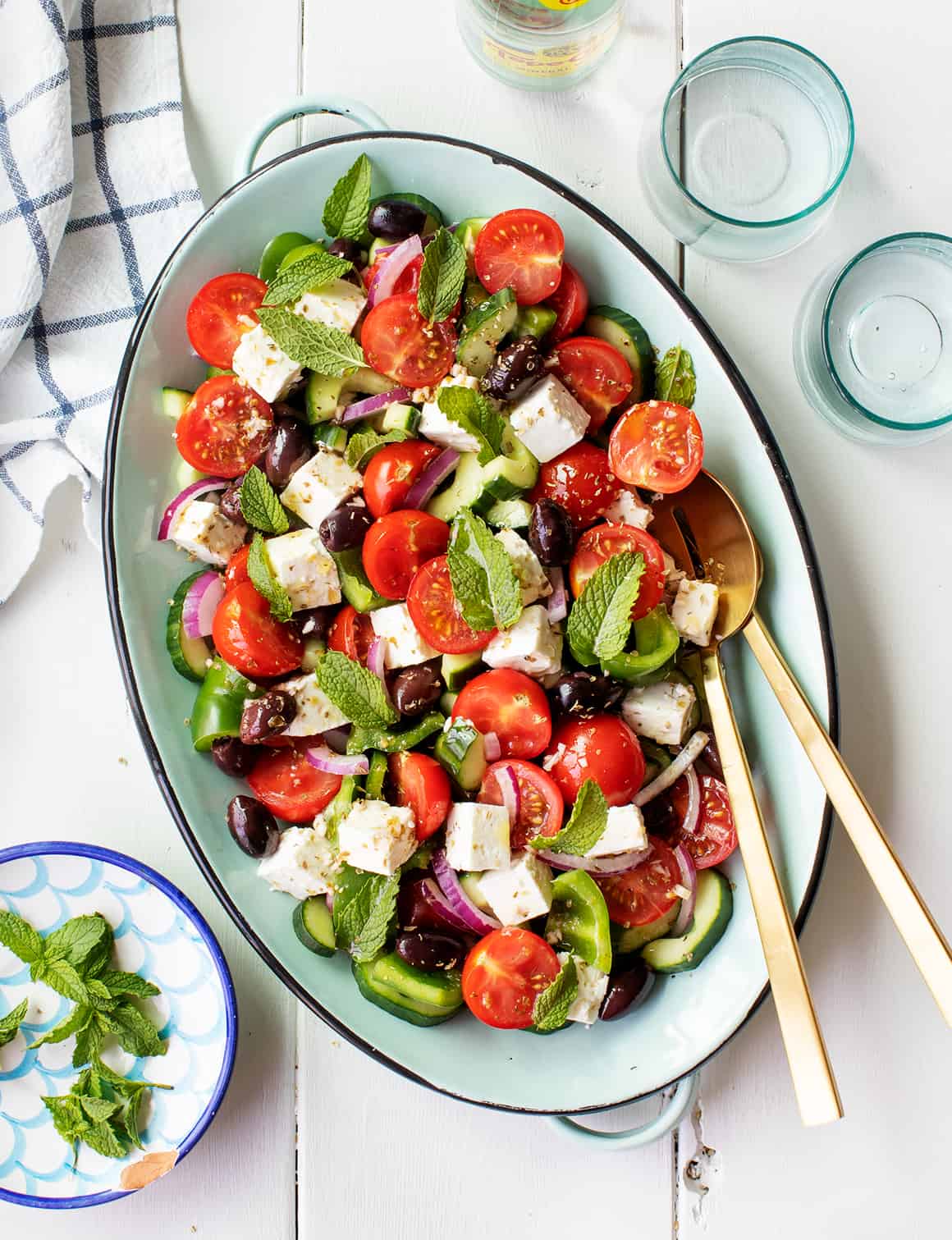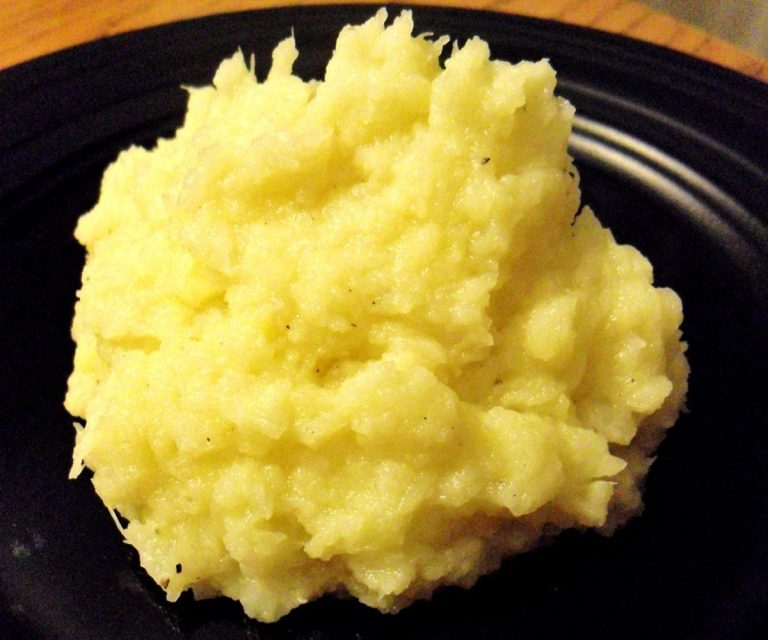Greek Salad: A Nutritious and Delicious Recipe
Greek salad offers a powerhouse of nutrients. It’s packed with essential vitamins and minerals from its fresh ingredients. You’ll find high levels of Vitamin A, Vitamin C, and potassium in tomatoes and cucumbers. Feta cheese adds a good amount of calcium and protein. Olive oil, another core ingredient, contributes healthy monounsaturated fats. These elements collectively make Greek salad a nutrient-dense option.
Health Benefits
Eating Greek salad regularly can support your overall health. The high fiber content from vegetables helps with digestion and promotes gut health. The antioxidants in tomatoes and olive oil can reduce inflammation and lower the risk of chronic diseases. Feta cheese, rich in calcium, supports bone health. Additionally, the healthy fats in olive oil help improve heart health by lowering bad cholesterol levels. This combination of ingredients makes Greek salad a beneficial addition to your diet.
Key Ingredients in Good For You Greek Salad
Olives and Olive Oil
Olives and olive oil provide a rich source of healthy fats and antioxidants. These fats, known as monounsaturated fats, help improve heart health by reducing bad cholesterol (LDL). Olives contain oleuropein, which has anti-inflammatory properties. When using olive oil, extra virgin olive oil offers the most nutrients and flavor. Drizzle it over your Greek salad to enhance taste and nutritional value.
Feta Cheese
Feta cheese adds a tangy flavor and creamy texture to your Greek salad. It offers a good amount of protein and calcium. Produced from sheep’s milk or a mix of sheep’s and goat’s milk, feta cheese is also lower in fat compared to many other types of cheese. This cheese provides beneficial probiotics, which support gut health. Crumble some feta cheese over your salad for a nutritious boost.
Fresh Vegetables
Fresh vegetables form the bulk of a Greek salad. Key ingredients include tomatoes, cucumbers, bell peppers, and red onions. Tomatoes are rich in lycopene, an antioxidant that supports heart health. Cucumbers hydrate the body, being over 95% water. Bell peppers contain high amounts of Vitamin C, enhancing immune function. Red onions add a slight sweetness and are a good source of fiber, aiding digestion. Including a variety of these fresh vegetables maximizes the nutritional benefits of your Greek salad.
How to Make the Perfect Good For You Greek Salad
Choosing the Right Ingredients
Selecting high-quality ingredients ensures your Greek salad is both delicious and nutritious. Opt for the freshest vegetables and the best extra virgin olive oil to enhance flavor and nutritional value.
- Tomatoes: Choose vine-ripened tomatoes for the best flavor. They contain lycopene, an antioxidant that supports heart health.
- Cucumbers: Use firm cucumbers with deep green skin for maximum freshness. They have high water content for hydration.
- Bell Peppers: Red, yellow, or green bell peppers work well. They add crunch and offer Vitamin C.
- Red Onions: Select medium-sized onions with glossy skin. They provide fiber and antioxidants.
- Kalamata Olives: These olives are rich in healthy fats and antioxidants. Choose pitted for convenience.
- Feta Cheese: Opt for authentic Greek feta made from sheep’s or goat’s milk to ensure maximum taste. It’s packed with protein and calcium.
- Extra Virgin Olive Oil: Use high-quality, cold-pressed extra virgin olive oil. It adds flavor and offers heart-healthy monounsaturated fats.
- Fresh Herbs: Consider oregano, thyme, or parsley. They enhance taste and offer additional antioxidants.
Preparing the Salad
Prepare each ingredient properly to maintain the salad’s texture and flavor. Proper slicing and mixing techniques ensure even distribution of taste and nutrients.
- Wash and Chop Vegetables: Clean all vegetables thoroughly. Chop tomatoes into medium chunks, slice cucumbers into half-moons, and cut bell peppers into strips.
- Slice Red Onions: Peel and thinly slice red onions. If you’d prefer a milder taste, soak them in cold water for 10 minutes before adding.
- Combine in a Bowl: Place chopped vegetables and olives into a large mixing bowl.
- Crumble Feta Cheese: Use a fork to crumble feta cheese over the vegetables for even distribution.
- Dress the Salad: Drizzle extra virgin olive oil generously over the salad. Toss gently using salad tongs to ensure all ingredients are well-coated.
- Add Fresh Herbs: Sprinkle freshly chopped herbs over the top for added flavor.
- Season to Taste: Add a pinch of salt and black pepper. Toss again lightly to mix the seasoning thoroughly.
Following these steps guarantees a Greek salad that is both visually appealing and packed with essential nutrients, supporting a healthy and balanced diet.
Pairing Good For You Greek Salad with Other Foods
Complementary Main Dishes
Greek salad pairs well with various dishes. Grilled chicken breasts, lamb chops, and fish fillets like salmon or cod enhance the salad’s fresh flavors by providing lean protein. Light pasta dishes with olive oil and garlic, stuffed bell peppers, and vegetable kabobs complement the salad’s vibrant veggies, ensuring a wholesome meal. Whole grain options such as quinoa or farro can add texture and nutritional balance. For vegetarian options, consider serving it with falafel, stuffed grape leaves, or lentil patties to provide plant-based protein.
Suitable Beverages
Appropriate beverages can elevate the dining experience. Sparkling water with a slice of lemon enhances the salad’s freshness without overpowering its flavors. Light white wines like Sauvignon Blanc or Pinot Grigio pair well, blending smoothly with the salad’s tangy elements and olive oil. Herbal teas, such as mint or chamomile, offer a soothing complement if you’re looking for non-alcoholic options. For a more robust choice, try a light lager beer to contrast the salad’s crisp ingredients while maintaining a balanced palate.
Conclusion
Greek salad isn’t just a feast for your taste buds; it’s a powerhouse of nutrition. With its fresh vegetables, tangy feta, and heart-healthy olive oil, you’re not only enjoying a delicious meal but also nourishing your body. Selecting high-quality ingredients and following proper preparation techniques ensures you get the most out of this vibrant dish.
Pair it with grilled chicken, lamb chops, or fish fillets, and complement it with sides like light pasta dishes or vegetable kabobs for a well-rounded meal. Enhance your dining experience further with beverages like sparkling water, white wines, or herbal teas.
So, next time you’re planning a meal, consider making a Greek salad. It’s a simple yet satisfying way to support a healthy and balanced diet while delighting your senses.






